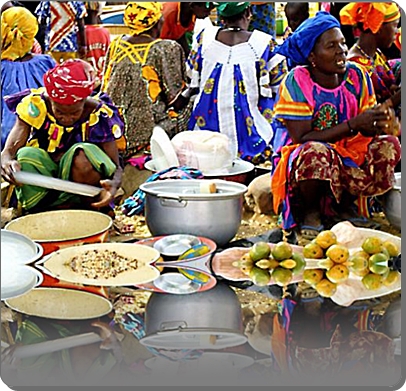Empowering African Business Women

 |
| Women in a market |
Even though equality between men and women stands out as a universal precept, a fundamental and inviolable human rights, women unfortunately continue to be confronted with discrimination, marginalization and exclusion. As we all are aware, women worldwide and in Sub-Saharan Africa in particular are less likely to have access to education, formal employment, in sufficient income to sustain themselves and their families, and when in business, they even face greater challenges in accessing credit and markets or obtaining other productive resources such as land and other basic inputs.
Statistics show that 23.7 percent of women in Sub-Saharan Africa has at least secondary education compared to men, which is 35.1 percent. The share of women employed informally is highest in Sub-Saharan Africa compared to the rest of the developing world. For example, in Kenya only 30 percent of the approximately 2.13 million formal employees are women – while the majority of Kenyan women work in the informal sector.
In Sub-Saharan Africa genenerally, 84 percent of women are informally employed compared to 63 percent of men. Informal work might keep women on the verge of poverty, simply because their incomes are hardly sufficient to build prosperity or even cater for basic needs of healthcare, clean water, nutritious food and safety for their families.
Furthermore, discriminative practices in the inheritance and ownership of land and other properties also pose fundamental constraints to women entrepreneurs, which limit their access to formal financing mechanism. Indeed, access to finance is rated as the single-biggest constraint that is preventing women from growing their businesses. Increasing the participation and employment of women in the formal sector could yield greater benefits not only for women but for the economy as a whole.
There is no doubt that if women had the same access to land, technology, financial services, education and markets as men, they could increase their yields in the agriculture sector by 20 – 30 percent, according to FAO. This could raise total agricultural output in developing countries by 2.5 – 4 percent, thus helping to reduce the number of undernourished people by as much as 17 per cent, meaning 150 million fewer hungry people in the world.
Women’s economic empowerment is not only a key challenge for women but a development concern for the society as a whole. A month ago, UNDP Kenya, UN Women, the Global Compact Network Kenya and the Kenya Association of Manufacturers jointly launched an initiative to promote women’s empowerment in Kenya through the Women’s Empowerment Principles. These Principles provide a seven- step blueprint for the global and national business community to empower women in the workplace, marketplace and the community. Nearly 60 representatives of the Kenyan business community were present at the event, and the response there and then was clear; that is, “empowering women is a must and a strategy that must be adopted for building a healthy and vibrant society.”
During the event, several strategies were identified to fast track the economic empowerment of women and four of these strategies are:
First, the lack of appropriate skills must be overcome through expanding the provision of education, skills and information to build the human capital of women. These skills are needed for women to access the increasing opportunities provided them in Kenya through, for instance, the Government of Kenya’s 30% procurement preference for women, youth and disabled and the Government Funds supporting women entrepreneurs.
Secondly, it was agreed that priority be given to women in accessing finance,technology and other productive resources,including land and other basic inputs.
Thirdly, it was acknowledged that women’s economic empowerment has to be a joint effort of all partners including the government, civil society, UN system and other development partners.
Finally, the participants highlighted the need to encourage the self- confidence of women. Networking, sharing of experiences and working together can have a greater impact in encouraging women’s empowerment. Specifically, the need to map out and share best practices and experiences among the business community was mentioned.
In conclusion, I want to encourage our women entrepreneurs to be the change they want to be for the growth and development of the economy.
By Nardos Bekele-Thomas,
UNDP Resident Representative.
